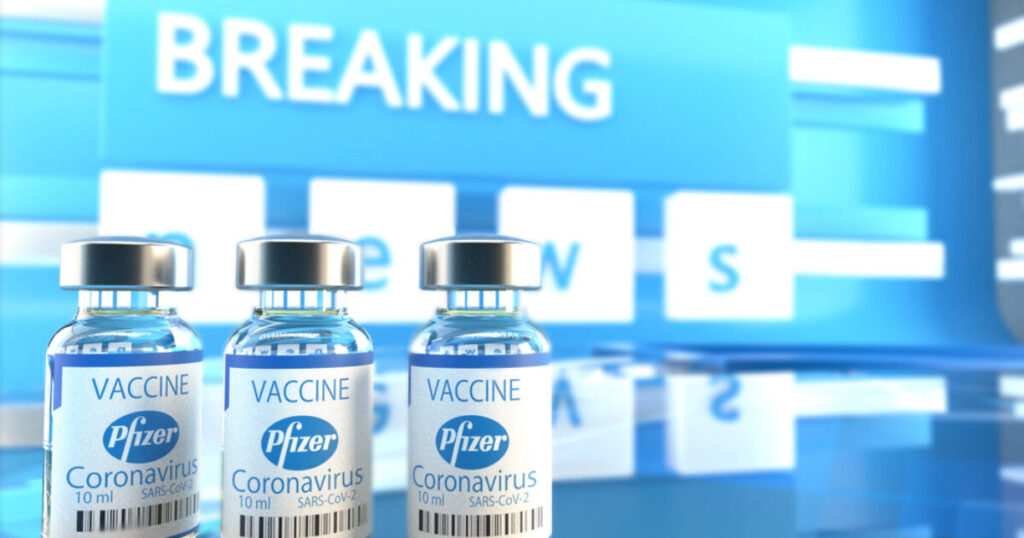A recent investigation into Pfizer’s clinical trial data behind its COVID-19 vaccine has sparked serious allegations from a team of researchers led by Dr. Jeyanthi Kunadhasan. The researchers have accused Pfizer of concealing critical information regarding deaths that occurred during the vaccine trials, specifically focusing on the case of a Kansas woman who tragically died following her participation in the BNT162b2 vaccine trial. This individual’s death, which happened 41 days after her second dose, is being highlighted as a key example of the alleged failures in how serious adverse events, including fatalities, were recorded and reported by the pharmaceutical company. Through their investigation, the research team claims that Pfizer did not thoroughly disclose the number of deaths that occurred in the trial, raising questions about the integrity and transparency of the data that was used to secure the Emergency Use Authorization (EUA) from the FDA.
The detailed report, presented to Kansas Attorney General Kris Kobach, critiques Pfizer for its practice of reporting serious adverse events. It alleges that only a fraction of the actual deaths, specifically six, were disclosed in Pfizer’s published findings. The report asserts that there were in fact eight deaths—four in the vaccinated group and four in the placebo group—that should have been reported. This discrepancy suggests alarming underreporting, particularly as two of these deaths were linked to cardiac events following the administration of the BNT162b2 vaccine. The investigatory report is underscored by the fact that one of the undisclosed deaths occurred within the same state, heightening the local and national implications of the findings.
The specific case of Subject 11141050, a 63-year-old woman from Kansas, illustrates the potential organizational failures within Pfizer’s reporting mechanisms. The participant had multiple pre-existing health conditions but qualified for the trial and received her second dose on September 8, 2020. Following her participation, she died from sudden cardiac arrest on October 19, 2020, yet her death was reportedly not documented by Pfizer for 37 days, in violation of their own protocols that mandate immediate reporting of severe adverse events. Such a delay not only raises ethical concerns but also highlights a potential lapse in the thoroughness with which the clinical trial data was managed.
In a broader examination of the data collected during the trial, the researchers found a distinct imbalance in death reporting between the vaccinated and placebo groups. From the available evidence, only two of the six deaths in the vaccinated arms were reported, which translates to a mere 33% reporting rate, while the placebo group appeared to have a far higher capture rate of 80% for reported deaths. This inconsistency in documenting and reporting deaths calls for an urgent inquiry into the protocols followed by Pfizer and whether external pressures may have influenced their data submissions to the FDA.
The findings presented in this investigation have prompted a range of reactions from the medical community and beyond. Dr. Aseem Malhotra, a well-respected cardiologist, linked the alleged underreporting of deaths to broader systemic issues within pharmaceutical capitalism, suggesting they contribute to a culture that potentially compromises patient safety. His remarks to the media echoed the sentiments of disillusionment among health professionals concerning corporate transparency and the integrity of clinical trial data. Such accusations, combined with the detailed analysis published by Dr. Kunadhasan’s team, reinforce the need for rigorous examination and oversight of clinical trial reporting practices.
Overall, the allegations brought forward by the research team concerning Pfizer’s COVID-19 vaccine trials signify a pressing need for accountability and rectitude in pharmaceutical practices. The discrepancies in death reporting, particularly significant cases like that of Subject 11141050, highlight the possible risks involved in the rapid development and approval of vaccines under emergency circumstances. The implications of these findings could have far-reaching impacts, not just for Pfizer but for vaccine rollout and public trust in health interventions moving forward. As regulatory bodies, the media, and medical professionals grapple with these revelations, the goal remains to ensure that public health decisions are founded on accurate, transparent, and comprehensive data.

